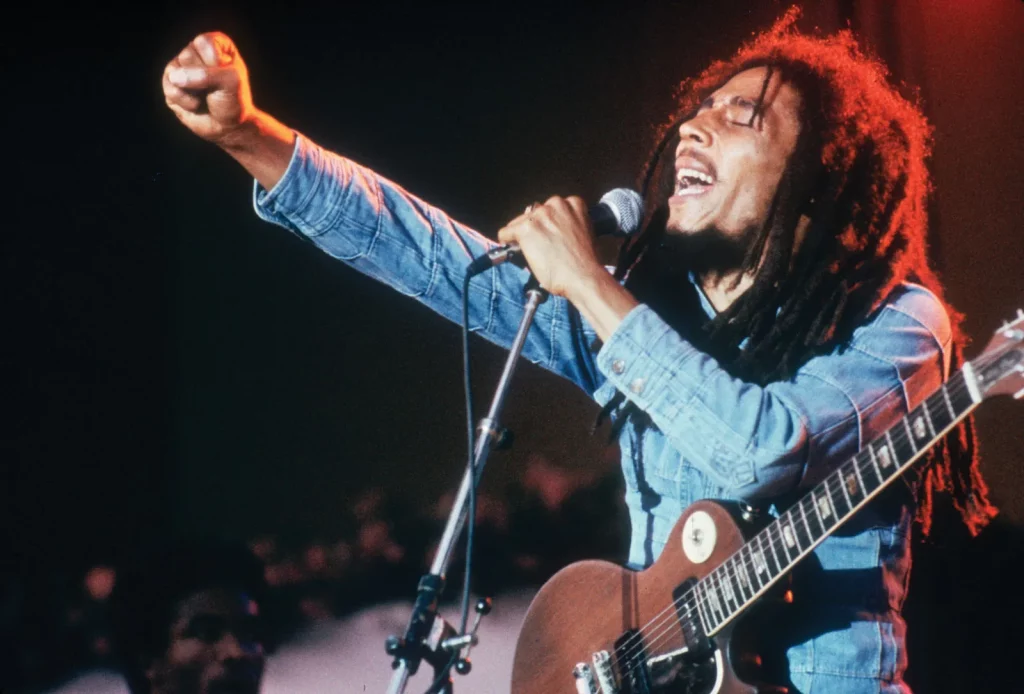
By Teja Beetan
For longer than commonly known, the rhythmic influence of reggae, soca, and dancehall music has pushed boundaries to allow modern genres of R&B, fusion, rap, punk, and more to flourish. Despite an oceanic distance and a cultural rift, Caribbean music has played a large role in both the influence and direct sampling in North American music. This process of musical revolution was slow but steady, impacted by civil rights movements and melodic trends alike. To truly understand the impact of the Caribbean on North American music, it is important we understand the generational talents that made it happen, starting in Jamaica.
Blazing sun, beautiful beaches, and belligerent violence; this was the Trench Town reality Bob Marley lived in as a young adult. The result? A revolutionary artist turning the political state of his home country at the time into music that made the world listen. For Marley, it was not just about stopping the murders, but building a better, safer Jamaica. The killings were linked to gangs siding with the country’s two political parties, the democratic socialist People’s National Party and the conservative Jamaican Labour Party. What started as a national endeavour for peace became international, as people around the world paid attention to and related their own struggles to Marley’s music. Undoubtably the most influential and well-known reggae artist to date, his legacy lives on through his children, as well as the immense amount of artists who drew inspiration from his powerful lyricism and his unmatched flow. Included in those artists is a trio so very dear to me and many others around the world; The Fugees.
Consisting of Lauryn Hill, Wyclef Jean, and Pras, they took direct inspiration from Bob Marley. Coming as refugees from an unstable Haiti, the three brought their musical stylings with them to Brooklyn. As you listen to the lyricism in both their most popular songs as well as Lauryn Hill’s hit solo album, The Miseducation of Lauryn Hill, themes of togetherness during times of hardship are emphasized, similarly to the messages perpetuated through Marley’s discography. If this was not enough, The Fugees created their own rendition of Marley’s famous ‘No Woman, No Cry’, citing their own experiences as refugees to replace the lyrics of his lived experience. Wyclef Jean was notably inspired by Jamaica, as he started his own Jamaican-style sound system, ‘Refugee Sound’.
Another influential artist predominantly popular in the 1990s was Jamaica’s Buju Banton. His highly distinct voice and bold lyrics have made him a Caribbean household staple. His music is very rebellious in nature, a tang of excitement and encouragement;
“Jah free the people, over hills and valleys too” (Buju Banton, Hills and Valleys)
Additionally, many new and popular songs boast samples of iconic reggae and soca songs. Sister Nancy’s ‘Bam Bam’ is perhaps one of the most used reggae samples, mixed into both Kanye West’s ‘Famous’ and Jay-Z’s ‘Bam’. As sampling has gained popularity in rap and R&B tracks, older songs have been receiving more attention, however, new soca, dancehall, and reggae musicians have gained traction in the west as well. Dovetailing the rapid popularity of Latin music, social media has caused a rise in popularity of Caribbean music. It has become so popular, in fact, that you will likely hear some Chaka Demis & Pliers playing at your local Aritzia. Artists like Jamaican-born Koffee and Trinidad’s Kes The Band have benefited off of this; Koffee’s adoring fans showed out during her North American tour, and I was lucky enough to see Kes in Montreal last year, at our very own Théâtre Beanfield, which was packed to the brim.
Although those two amazing artists generally stick to more pop-fusion dancehall, soca, and reggae, other genres have been impacted by Caribbean flair. Punk music, as of the 1970s, was heavily influenced by reggae, notably with bands such as The Clash and The Sex Pistols. Lower and middle class youths in Britain realized they related more with their Caribbean immigrant neighbours than the English upper class, bonding over economic status and a shared love of reggae/ska. It could have been the catchy riddim of the songs or the fight-the-power motifs; these two unsuspecting genres found inspiration in one another. An example of punk drawing on Caribbean influences is The Clash’s ‘Guns of Brixton’, detailing the troubled lives of Caribbean youths near them at the time.
From talented pioneers to rebels with a cause to hypnotic samples, the Caribbean influence on western music is impossible to deny. A familiar flavour has been brought far from its origins, and has found a new home here; a little bit of island sun to warm us up during this cold Canadian winter.